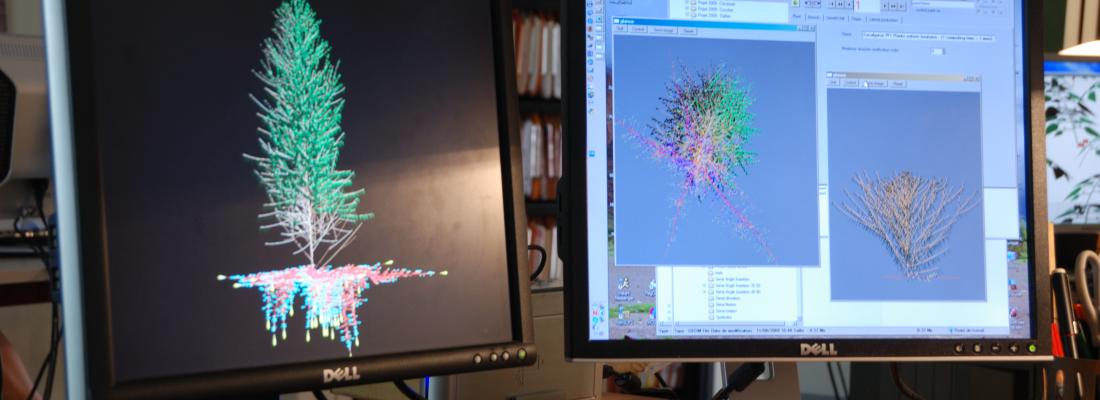Reading time 5 min
Digital sciences and modelling
Updated on 02 January 2020

With a PhD or an engineering degree from a Grande École
Example I Researcher in mathematical biology
INRAE researchers in mathematical biology work to design, carry out, and develop innovative experimental informatics methodologies that are well suited to the complex system models being explored at the institute. Such methodologies make it possible to study and model biological phenomena and processes. These approaches can be used to address various challenges (e.g., risk evaluation, shifts in scale, optimisation), notably in epidemiology, agroecology, and nutrition.
In general, researchers must demonstrate the value of their scientific results. Value may be expressed in different forms depending on the field. Most commonly, researchers describe their discoveries in scientific publications, an important medium of communication within the scientific community. They often share their scientific expertise with national or international policy makers and/or the national or international scientific community. Researchers also train and teach students. Additionally, they may be responsible for managing technical, financial, and human resources.
| Degree requirement(s) | Portraits | Job offer |
|---|---|---|
| PhD (or equivalent) | Check out the portraits of our researchers (coming soon) | See our job postings |
Example I Specialist in statistical information
INRAE specialists in statistical information work to design, implement, and ensure the proper functioning of statistical information systems aimed at informing decision-making. Their main tasks are leading statistical research projects; defining approaches for collecting, managing, and processing data; designing surveys and studies; coming up with methods for processing stored data; verifying the quality and interpretation of results; and providing expert advice on statistical methods.
Specialists in statistical information have a variety of responsibilities. For example, they must produce generic or operational knowledge, develop scientific tools for researchers to use, build socioeconomic and institutional partnerships, and provide expertise. Additionally, they may be responsible for managing technical, financial, and human resources.
| Degree requirement(s) | Related fields | Portraits | Job offer |
|---|---|---|---|
| PhD or engineering degree from a grande école (or equivalent) | Statistics and probability, econometrics, applied mathematics | Check out the portraits of our researchers (coming soon) | See our job postings |
With 3–5 years of higher education
Examples I Data scientist, engineer in computational science
With the goal of meeting a research need, INRAE data scientists and engineers in computational science use mathematical methods to build models and employ informatics techniques to optimise data access and programming. Their main tasks are exploiting experimental and observational data; setting up tools and software for performing scientific calculations; providing advice to researchers on the choice of applications and mathematical methods; and developing and optimising code to create new analytical frameworks or to tackle new problems.
They help improve the experimental systems and protocols that they employ. They ensure that research methods and objectives are a good fit; they also analyse and communicate research results. Additionally, they may be responsible for managing technical, financial, and human resources.
| Degree requirement(s) | Related fields | Portraits | Job offer |
|---|---|---|---|
| Undergraduate degree, master's degree (or equivalent) | Applied mathematics, scientific informatics, modelling, simulation, high-level scientific mathematics | Check out the portraits of our researchers (coming soon) | See our job postings |
